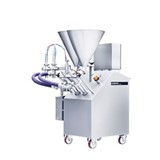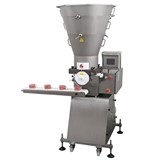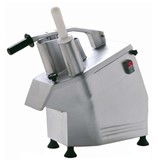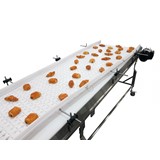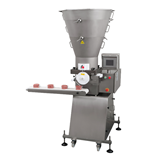Australia is one of the fattest nations in the developed world. Obesity rates have doubled in the past 20 years to the point that of a population of 23 million, 14 million of us are now considered either overweight or obese.
Obesity has overtaken smoking as the leading cause of premature death and illness, and food and beverage manufacturers are popularly seen as the villains, guilty of peddling their high fat, high sugar and high salt products without regard for the health and wellbeing of their customers.
The parallels to the tobacco industry while obvious are absurd, but are food and beverage manufacturers just paying lip service to the problem, or is it indeed their problem at all?
Whose problem
The Australian Food and Grocery Council (AFGC) is the country's peak body representing both small and large processors and perhaps unsurprisingly claims that food and beverage manufacturers have not only taken ownership of the issue, but continue to employ strategies that alongside health sector lobby groups seek to mitigate Australia's obesity crisis even at the expense of revenue and profit.
"Food manufacturers have for some time engaged with retailers, stakeholders, and state and federal government to address lifestyle-related non-communicable diseases," AFGC CEO, Gary Dawson, said.
"The AFGC has long advocated for a broader consideration of energy balance – the relationship between energy consumed and energy expended through physical activity – in the development of health policy, particularly in relation to obesity and the rise of non-communicable disease.
"Energy balance is a core principle of the industry's Healthier Australia Commitment which seeks to improve public health through practical initiatives including reformulation of foods to reduce salt, fat and energy content; promotion of greater physical activity in the workplace and advice to parents and families on healthy diets and family activities."
Industry action
For example, earlier this month Nestle announced that it was halving the size of its Allen's brand Killer Pythons, reducing the confectionery from 47 grams and 630 kilojoules to 24 grams and 336 kilojoules.
Nestle dietitian Melanie McGrice said the reduction in the portion size to a more appropriate single serve was one step in helping people control their nutritional intake.
"Controlling portion size is an effective, simple and reliable tool that is used in maintaining a balanced diet," McGrice said.
"A 10-year-old can now run off a Killer Python in around 30 minutes. With the previous size, it would have taken almost an hour.
"Experience working as a dietitian has shown me that telling people to cut all treat foods out of their diet is unrealistic and unachievable in the long term."
Critics claim such initiatives are at best carefully crafted PR stunts, or worse cynical profit-raising exercises, an accusation Nestle has rejected, pointing to the fact individual units will also be halved in price, while the multi-bag will remain at the same overall weight and price with only the individual portion size changing.
The PR stunt claim hardly stands up to scrutiny either, as the company immediately faced a backlash from its customers on social media with comments on the company's Facebook page expressing disappointment at the decision, perversely branding the move 'un-Australian'.
"Not cool Allens...not cool...We don't eat them for their nutritional value, we eat them as a treat!!", and: "Allens lollies who are you to tell the public what and how much we should eat per serving - you don't think people will just eat extra rather than one?"
More work ahead
In 2009 the Australian Food and Health Dialogue was established, a flagship initiative by the federal government and food processors to improve the healthiness of the country's food supply.
As part of the initiative food manufacturers committed to cut sodium levels in bread, breakfast cereals and processed meats.
Professor Bruce Neal of the George Institute for Global Health at the University of Sydney said huge amounts of salt were being added to the food supply for purely commercial purposes, but acknowledged that progress was being made.
Every year, The George Institute has been tracking salt levels in more than 15,000 products on supermarket shelves to document whether the targets are being met.
The evaluation found that salt levels in breads and breakfast cereals were down. But progress towards the target agreed between industry and government for processed meats was poor.
"A number of bakers have made great progress towards meeting the salt targets they agreed with government. Coles and Woolworths, for example, got all their breads down to the target," Professor Neal said.
"Goodman Fielder isn't quite there yet but it made really significant improvements, from 30 per cent rising to 65 per cent now at target."
Average salt levels in breakfast cereals are also in decline, falling from 316mg per 100g in 2009, to 237mg per 100g today.
"Kellogg's have made significant improvements but there are still some pretty salty products out there because this was a soft target," Professor Neal said.
"The breakfast cereal industry was pretty clever about what it agreed to, and government should have taken a firmer stand. But it's certainly progress."
For processed meats, Professor Neal said, the results have been mixed.
"The proportion of products meeting the target rose from 28 per cent to 47 per cent but many products remain very salty," he said.
Helen Trevena, co-author of the study, said modest progress was made by most companies in what she acknowledged was a challenging category, but there were exceptions.
"It was disappointing to find the largest processed meat manufacturer, Primo Smallgoods, appeared to have gone back on their commitment," Trevena said.
"It's unclear why, but as far as we can tell the proportion of products meeting target was less in 2013 than it was in 2010."
Professor Neal said that nevertheless the results proved if government pushed, industry would act.
Government regulation
The introduction of the Health Star Rating (HSR) system over the next five years is another example, and will coexist with existing front of pack schemes such as the Daily Intake Guide and the Heart Foundation Tick.
Industry says it is evidence that food manufacturers strongly support more informed consumer choice. The health lobby says industry has consistently and vocally opposed stronger regulation and must be dragged into line.
But what about consumers? Are we just blameless victims who need nanny state intervention to save us from making poor food choices by regulating the industry that ultimately supplies us with what we demand? Not so according to University of Illinois researcher, Brenna Ellison, who has studied the issue in the obesity capital of the world, the United States.
"Based on our study results, consumers' beliefs about who is to blame for obesity don't necessarily align with the beliefs of policy makers and public health advocates," Ellison said.
"Unquestionably, obesity and overweight rates are much higher than they were 20 or 30 years ago so it is not surprising that policy makers and public health officials are looking for potential solutions.
"That being said, if individuals view obesity as a personal problem, how confident can we be that these solutions will work? We need to be realistic about the solutions we're proposing and implementing, and if people are not buying into them, they may need to be re-evaluated."





